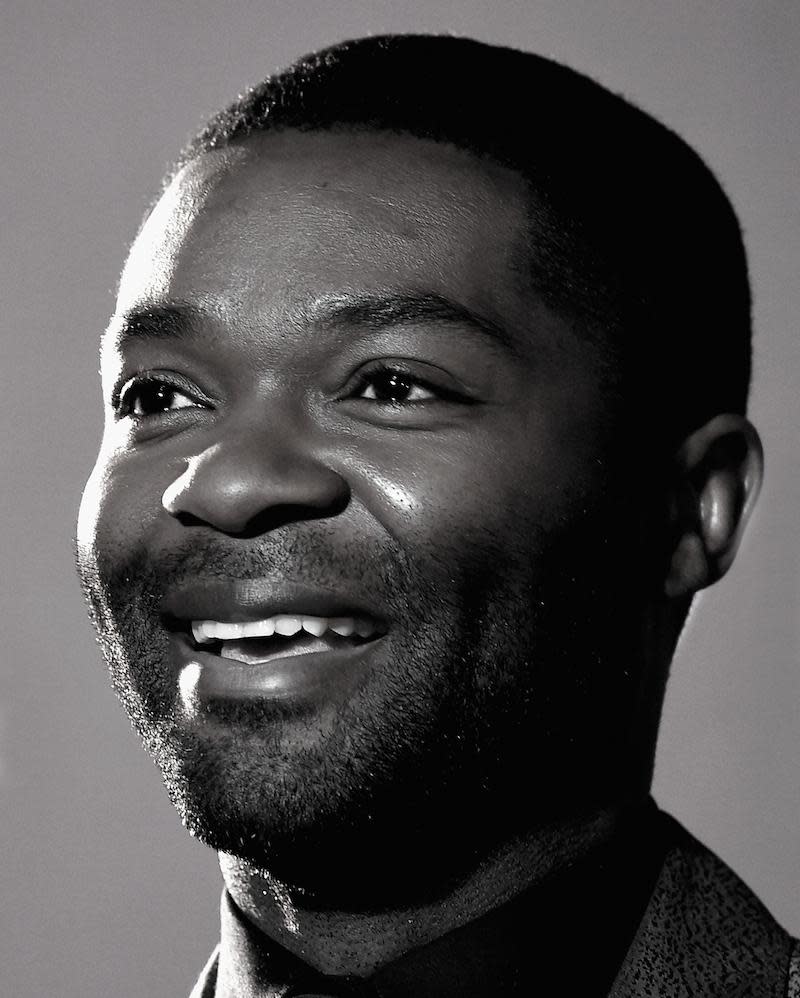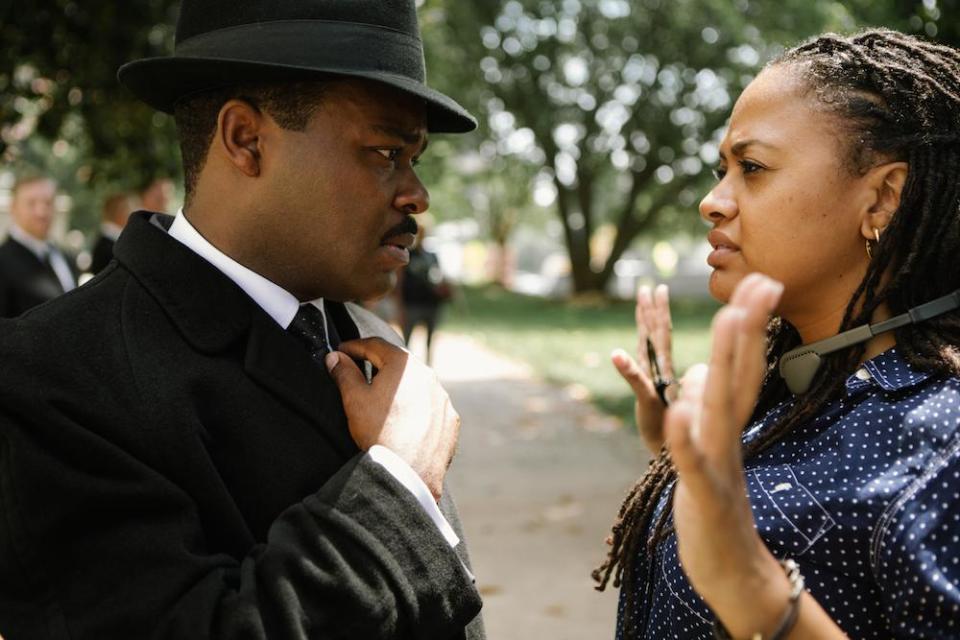David Oyelowo: Why Ferguson, Racial Injustice Make 'Selma' So Relevant Today

David Oyelowo had a dream to play Martin Luther King Jr. In fact, the way the actor describes it, it was a prophecy that came to him in 2007.
It happened after he and his wife relocated from England to Los Angeles with the hope he’d advance his acting career. “It’s very challenging moving your family from one country to the next,” the 38-year-old tells Yahoo Movies. He should know: Born in Oxford, England, to Nigerian parents, his family moved back to Lagos for a time while he was growing up.
Soon after his big move across the pond nearly eight years ago, Oyelowo got the script for Selma, about MLK’s perilous march in Alabama to gain voting rights for black Americans. “How it manifested was I felt a discernable voice, which I know to be God’s voice, saying, ‘You are going to play Dr. King in the film Selma,’” he recalls. “As weird as that may seem, trust me, it was weird to me.”
It took more than five years to get Selma off the ground. But once it took flight, Oyelowo gained 30 pounds for the film — which, surprisingly, is the first time King has received prominent treatment on the big screen.
Oyelowo has earned a Golden Globe nomination for playing MLK and is now generating Oscar buzz. He spoke more to us about the Ava DuVernay-directed film, in theaters everywhere Friday, and its relevance to current events:
There are countless movies about John F. Kennedy. Why so few about Martin Luther King Jr.?
I have been asking the same question in the seven years since I’ve been hoping this film gets made. I would go further and say how is there a J. Edgar Hoover movie before there is a Martin Luther King one? I think it’s rooted in the fact that there has been an unjust fear about black characters as protagonists as driving forces within their own stories — especially when it comes from a historical context. After Malcolm X, I dry up very quickly when I try to think of a high-profile theatrical narrative film treatment.
Related: ‘Selma’ Cast Talks About Their New York Premiere Protest
There has been a tendency to tell those stories through the eyes of white characters. So you have Dr. King having been in movies, but always as a peripheral character.
Because we are in the midst of a sea change, the environment afforded us the opportunity to finally get this film made — in the wake of films like 12 Years a Slave and The Butler.
Selma reminds us that people put themselves in harm’s way, and some died, for the right to vote. We’re entering an election year. Is the timing purposeful?
The timing is very right. We couldn’t have predicted that the Voting Rights Act that Dr. King and that particular march fought for and won would be, as of 18 months ago, eroded. They know that it is going to marginalize people who would otherwise vote. Between the erosion of the Voting Rights Act, between Ferguson, and us being in a time where we have a black president — which is a problem for a lot of people — I think [Selma]’s very timely and hopefully this film will shine a light on those issues.

Oyelowo and DuVernay discuss a scene
If Martin Luther King Jr. were alive today, what do you think he would be fighting for?
He’d be fighting for the thing he tried to fight for when he was cut down, which is economic equality. As he said himself, it didn’t cost the country anything to instigate voting rights. It didn’t cost the country anything to instigate the Civil Rights Act. It was about delivering on a promise that had been made 100 years ago in the Emancipation Proclamation. But the minute he started talking about economic equality there were forces that just felt his time on Earth had to be cut short because then you’re hitting people’s pockets, then you’re talking about true equality across the board. Those problems very much are still with us. Economic inequality is why we have a disproportionate amount of people of color in prisons, in ghettos, and without health insurance.
Related: Making 'Selma’ Without Martin Luther King, Jr.’s Speeches
Selma doesn’t shy away from showing MLK’s personal faults.
I was already dealing with a figure who is so deified, who is quite rightly deemed an icon. You have to go behind the veil. There has to be something revelatory about the film. The thing that people notice so little of is who the man behind “I Have a Dream” was. Ava and I worked very hard in reshaping Paul Webb’s original script, which, to be perfectly honest, was more focused on LBJ than Dr. King. It wasn’t until Ava came aboard and rewrote Paul’s script that we really started to plumb the depths of who this man was.
Oprah Winfrey, who appears in the movie and is a producer, has said you two became fast friends on The Butler. How did that pave the way for this role?
She said to me, “David, I see in you, you remind me of me 30 years ago.” That was kind of a surreal thing to hear the wonderful and incredible Oprah Winfrey say. When I talked to her about Selma as an opportunity I crave and I feel like it’s something I have to do, she basically said, “I want to help you get there.” So I called her bluff and said, “Well come be a producer.… I just know that you plus this project plus the time and plus what I see is possible will lead to something good.” And it did.
Generally it’s the director who hires the actor, but in this case you’re the one who invited Ava DuVernay to the project. How did that come about?
I had done a film with her called Middle of Nowhere in 2011 and I had just fallen in love with her as a director. She took me to a place of honesty with a character that on paper could have been quite thinly drawn. I always felt that that’s what is needed for Selma because if I fall into the trap of depicting an icon, if it becomes perfunctory and feeling like it’s stuffed in mothballs then the audience is going to switch off. Few directors have, in my experience, been as good with mining characters for humanity like she is, and so she felt like a perfect fit to me.
Photo: Frazer Harrison/Getty Images/ Paramount Pictures/ Atsushi Nishijima

